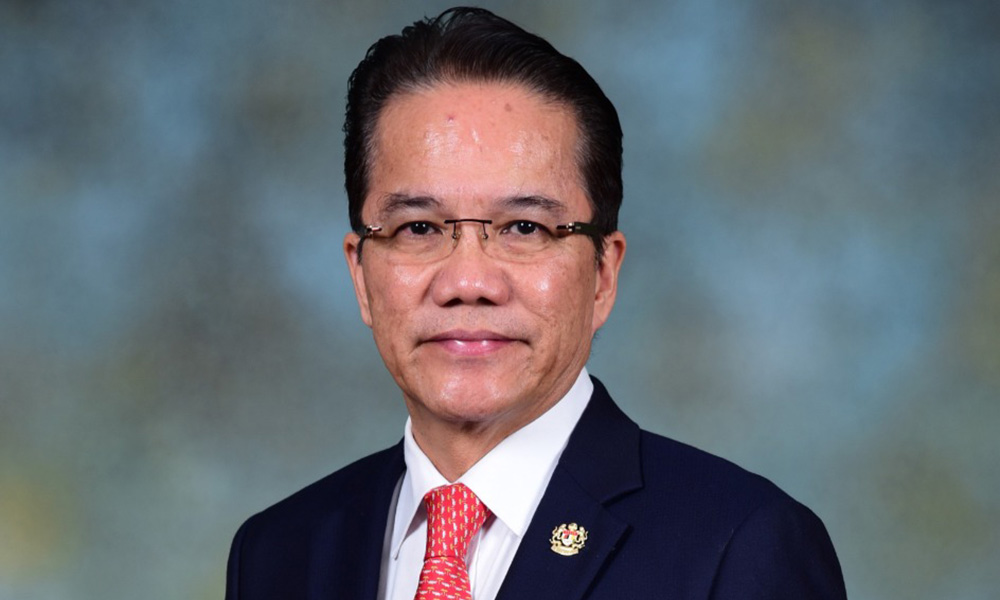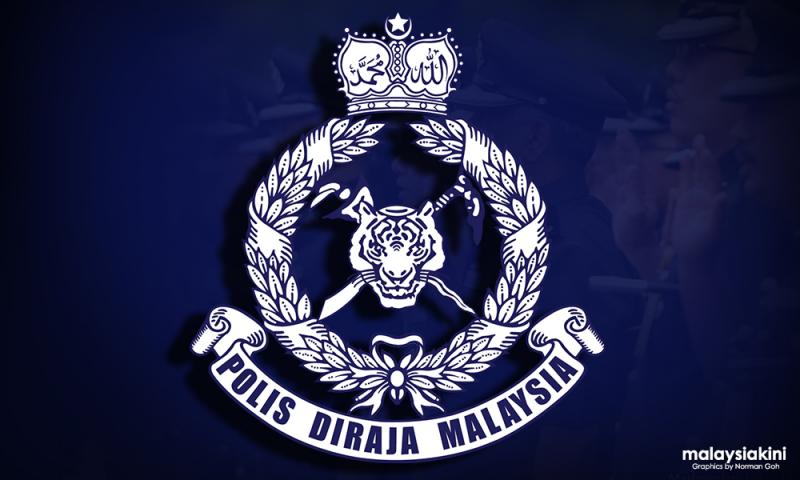LETTER | Striking fatal flaws in IPCC Bill 2020
LETTER | As the Perikatan Nasional rose wresting political power earlier this year, many had already read last rites for the proposed Independent Police Complaints of Misconduct Commission (IPCMC).
The 130,000 over police votes on the line led the IPCMC Bill 2019 becoming fashionably political and divisive - receiving awesome objections in the Dewan Rakyat from across the political divide. The then opposition - who now largely form the Federal Government - was the bill’s sternest opposers.
Triumphing populist rhetoric of ‘defending police rights’, they speared protest at every turn. Many heads hence turned, in pleasant surprise, however, as they pursued Pakatan Harapan’s legislative agenda for police accountability and tabled the Independent Police Conduct Commission (IPCC) Bill 2020. But this welcomed surprise was short-lived.
Detailed analysis of the IPCC Bill 2020 today reveals inherent fatal flaws, setting the stage ideal for the commission’s failure before it is even established.
Fatal removal of disciplinary powers
The most salient feature of the IPCMC Bill 2019 was that the commission itself would possess disciplinary powers over the police force: allowing them to act upon the findings of their investigations. This was the bill’s most attractive feature. It would have been the only police accountability commission in the world with such powers.
Truly one of a kind. In fact, the disciplinary aspect of the IPCMC Bill was so rare and unique that from the day the IPCMC Bill was first tabled in the Dewan Rakyat, the Law Minister’s Office became immediately overwhelmed with requests from foreign embassies, high commissions and international civil society organisations requesting a consultation to learn more about the IPCMC Bill.
Of course, the IPCMC possessing disciplinary powers was naturally also the police’s biggest objection to the 2019 Bill. Their response was always the same: it is unconstitutional for the IPCMC to exercise disciplinary powers over the police, despite the Attorney-General’s Chambers and various constitutional law experts having said it is indeed constitutional.
In the IPCC Bill 2020, we see that PN has acceded to the demands of the police. The IPCC will no longer have disciplinary powers over the police force. They can investigate police misconduct but cannot take any disciplinary action against the police. They can merely refer their findings to the Police Force Commission (PFC) and recommend action be taken. \
It is then left solely to the PFC to decide if they wish to act on the matter. If the PFC does not act, nothing further can be done. Investigating police misconduct and recommending action be taken is exactly what the Enforcement Agency Integrity Commission (EAIC) is already doing now.
How will the IPCC be any different from the EAIC? PN must explain.
Fatal failure to categorise misconduct
Clause 22(2) of the IPCC Bill 2020 provides that any police misconduct regulated under sections 96 and 97 of the Police Act 1967 cannot be investigated by the IPCC. Under section 97 of the Police Act, the Inspector General’s Standing Orders (IGSOs) prescribe over 100 minor and major misconducts that are for the police themselves to investigate.
If all of these misconducts are to be investigated by the police force itself, then what will the IPCC be allowed to investigate?

To address this issue in the past, former law minister Liew Vui Keong in an amendment to the IPCMC Bill 2019 painstakingly set out a comprehensive list of everyday ‘minor misconducts’ such as showing up late to work or dressing untidily that the police force itself could handle whilst all other misconducts would be ‘major misconducts’ that the IPCC would have to investigate and act upon.
However, this amendment has not been incorporated into the IPCC Bill 2020. Hence, the present bill basically allows the police to act upon all misconducts themselves, leaving the IPCC with absolutely nothing to investigate.
It renders the commission purposeless before it is even established. PN must explain how it intends to distinguish between misconducts the police themselves may continue investigating under the IGSOs vide section 97 of the Police Act, and those that the IPCC will be allowed to investigate independently.
Escape from obligation to produce documents
Similar to the IPCMC Bill 2019, Clause 28 of the IPCC Bill 2020 vests the IPCC with powers to obtain documents whereby the police must produce the documents requested by the IPCC. However, looks can be deceiving.
PN has once more acceded to the repeated request of the police to include an escape clause into this provision. In the IPCC Bill, this would be Clause 28(6) which provides that a police officer must obtain the approval of his or her Head of Department before producing any document requested that is deemed “prejudicial to national security or national interest”.
National security and public interest are infamously vague excuses that authorities employ to evade scrutiny. So, what happens when the IPCC requests an extremely important document be produced, but the Head of Department refuses to accede to the request?
This will become an abused escape clause for the police to frustrate IPCC investigations. In 2019, there were similar consistent requests from the police for such a clause to be included. But Liew stood firm and refused to allow it, knowing full well the tendency for abuse is all too great. But PN seems to have no issue with it. They must now explain what happens should the police refuse to produce a document so important that without it, the IPCC simply cannot proceed with their investigation. Who will be held accountable?
Limited mechanisms to receive complaints
Similar to Clause 24 of the IPCMC Bill 2019, Clause 24 in the IPCC Bill 2020 provides that all complaints of misconducts against the police must be made in writing. However, do not be fooled: there is a difference. On Oct 7, 2019, in the Dewan Rakyat, Liew rose to his feet and proposed an amendment to the 2019 Bill for the words all complaints must be “made in writing” be removed. This would have allowed the public to file a complaint with the IPCMC through any means: call, text, WhatsApp, even on Facebook. The police objected strongly.
In this regard, PN has again acceded to the police’s request. It has been maintained in the 2020 Bill that a complaint can only be in made in writing, making it as restrictive and inaccessible as possible for the public to file a misconduct complaint, which simply only works in the police’s favour.
Why are the police afraid of anonymous complaints? If they have done nothing wrong, the IPCC will investigate and clear them of any misconduct. Only if there is indeed something for the IPCC to act upon would they be so afraid. PN must explain why it wishes to restrict the public from filing misconduct complaints against the police.
Removal of powers of arrest
In the IPCMC Bill 2019, Clause 29(3) provided the IPCMC Task Force with all powers of investigation contained in the Criminal Procedure Code such as powers of arrest when investigating incidents of grievous hurt and death in police custody. Of course, the police protested strongly against the IPCMC exercising such powers. But once again, Harapan made no compromise: any independent body investigating the police must, of course, have either equal or more powers to the police in order to carry out their duties effectively.
But PN made the compromise. They gave in to police demands and stripped the IPCC of arrest powers. How is a commission with lesser investigative powers than the police supposed to investigate the police? It simply makes no sense.
Police officers can evade IPCC questioning all day long, and the IPCC will not be able to do anything about it. They will be made a lame duck. For the foregoing reasons, the IPCC proposed by PN is nothing but a sham. It is in fact exactly the EAIC rebranded to only appear independent and fierce when it is truly a hallmark failure of the PN to reform the police force.
There has never been a political will to do so from Bersatu and its current allies, and this IPCC Bill is cogent evidence of the same. One can only hope that there will be open engagements with all stakeholders to refine the IPCC Bill 2020 before should it ever make it to its second reading in the Dewan Rakyat.
HARINDER SINGH served as Special Functions Officer and later Press Secretary to Liew Vui Keong.
The views expressed here are those of the author/contributor and do not necessarily represent the views of Malaysiakini.
RM12.50 / month
- Unlimited access to award-winning journalism
- Comment and share your opinions on all our articles
- Gift interesting stories to your friends
- Tax deductable
